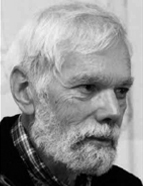

While Portugal had a strong tradition of studies on daily life (Oliveira Marques, Iria Gonçalves, among others), the area of medieval mentalities had for a long time remained almost completely neglected. Similarly, before Mattoso’s decisive contributions, studies on the origins and antecedents of Portugal generally failed to distinguish ideological construction from reality. In this regard, much of what the author established has been so thoroughly assimilated that it is now considered not only consensual but also self-evident, even though it was entirely absent from earlier Portuguese historiography. For instance, this includes the role of the infanções , the middle layer of the nobility, who in the Portucalense region assumed increased military, administrative, judicial, and political importance following the disappearance of the Counts of Portucale in 1071. This strengthened tendencies towards autonomy and supported Prince Afonso Henriques in his struggle for independence from Galicia and the Kingdom of León. Another example is the decisive political consequences of transferring the seat of Portucalense power from Guimarães to Coimbra in 1131.
José Mattoso’s evocative interpretations do not stem from a merely essayistic approach to Portuguese history. Behind his syntheses, which have always been well-received by the general public, lies meticulous and patient work of refined erudition, exemplified, for instance, by the critical edition of historical sources as rich and significant as the Portuguese m edieval l ineage b ooks ( Nova Série dos Portugaliae Monumenta Histórica , Lisbon Academy of Sciences, 1980; two volumes, the second of which consists of two parts, with the first volume produced in collaboration with Professor Joseph Piel). Mattoso also devoted considerable attention to the discipline of history, its practice, and its narrative form, as demonstrated in a collection of texts, most of which are compiled in the anthology A Escrita da História [The Writing of History] (1st ed., Editorial Estampa, 1988). In this field, José Mattoso consistently rejected adherence to any single school of thought, preferring instead to “find in antagonistic interpretative systems, or in those considered irreconcilable by theorists, reflections that are equally valid and not as mutually exclusive as they claim” (Preface to the book A Escrita da História [The Writing of History], 2002 edition, p. 7). His admitted “personal aversion to theoretical questions and abstract notions” ( A Escrita da História , p. 11) did not prevent him from seeking to systematise his conclusions or diminish the scientific rigour required of the discipline. Hence, his explicit rejection of alignment with postmodern conceptions, characterised by a tendency towards the fragmentation of knowledge, indifference to historical fact, and “their voluntary arbitrariness” ( ibid em , p. 22). Mattoso’s efforts to reflect on history, its issues, and its outcomes took on more concrete forms in his various assessments of medieval historiographical production in Portugal. On numerous occasions, he published reviews highlighting the progress made, unresolved themes, and prospects for research and synthesis concerning Portuguese medieval history, while also revisiting his own positions on the structure of the noble family in Portugal in light of subsequent studies and the critiques of some of his disciples. The most recent expression of this reflective and evaluative approach is the collective volume The Historiography of Medieval Portugal (c. 1950–2010) , directed by Mattoso, in which he provides, in the introduction, a comprehensive overview of medieval studies related to Portugal from the mid-20th century to the first decade of the 21st century.
This work is financed by national funds through FCT - Foundation for Science and Technology, I.P, in the scope of the projects UIDB/04311/2020 and UIDP/04311/2020.
